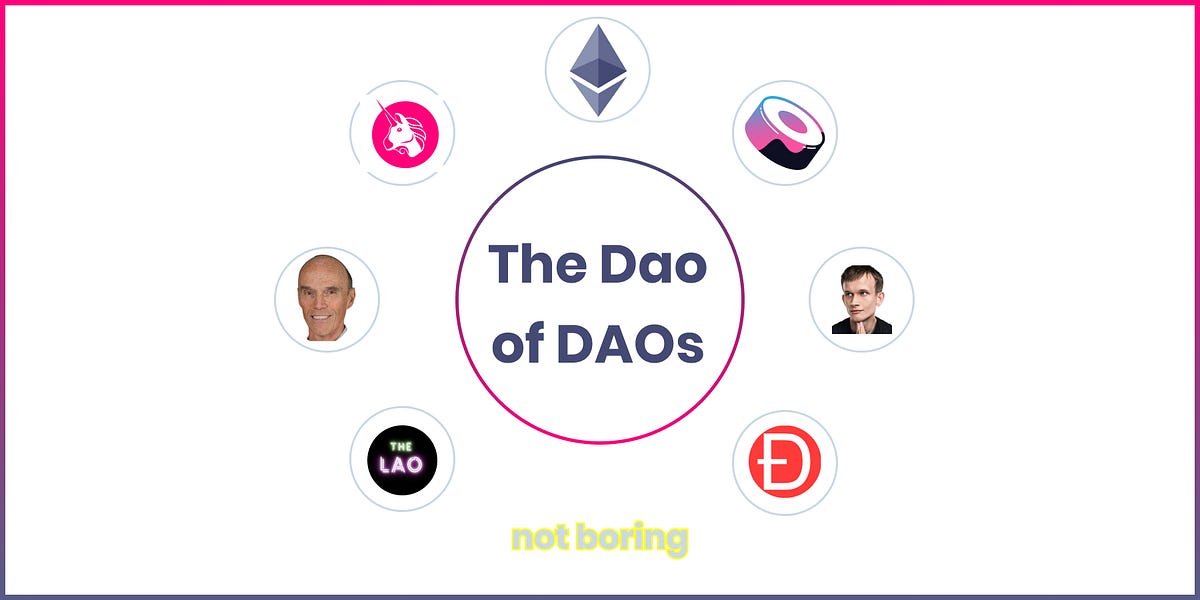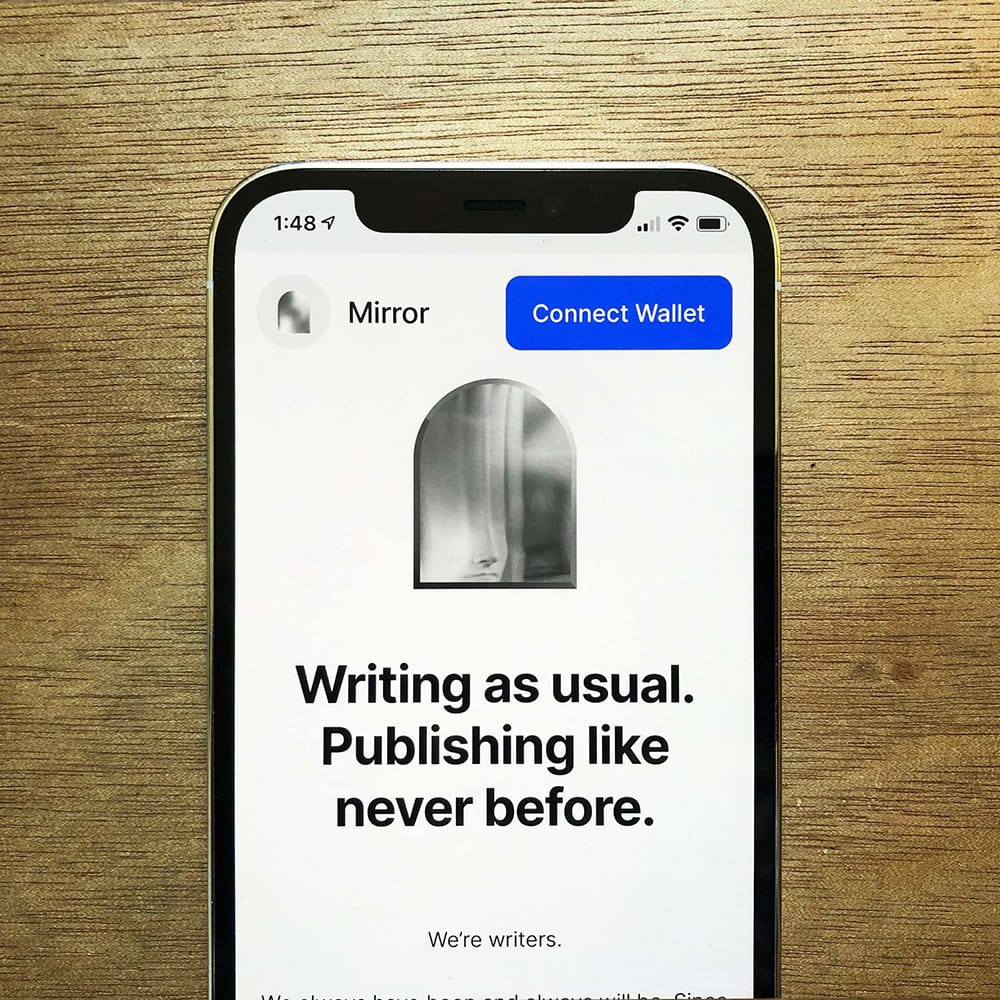Mirror is a new publishing platform for writing. It's kinda like Medium, except Mirror is based on a blockchain.
Every time a post is published on Mirror, it gets added to an Ethereum blockchain, leaving an immutable record of who published that post, when it was published, and other important, technical details.
- This opens the door to a whole new set of means for monetization, collaboration, and community building.
- It all starts with how you join the platform in the first place.
Mirror is invite-only — with a twist. Right now the only way to get access to a Mirror publication is through a weekly competition called the $WRITE RACE.
- Tech platforms leveraging exclusivity to build interest during the early stages of audience development is nothing new.
- Facebook, Gmail, and Clubhouse have all leveraged the immense power of the invite to build network effects.
Mirror's key innovation: each week, the Mirror community votes on 10 people to reward with a $WRITE token, a digital key which unlocks an account with publishing powers on the platform.
The $WRITE Race
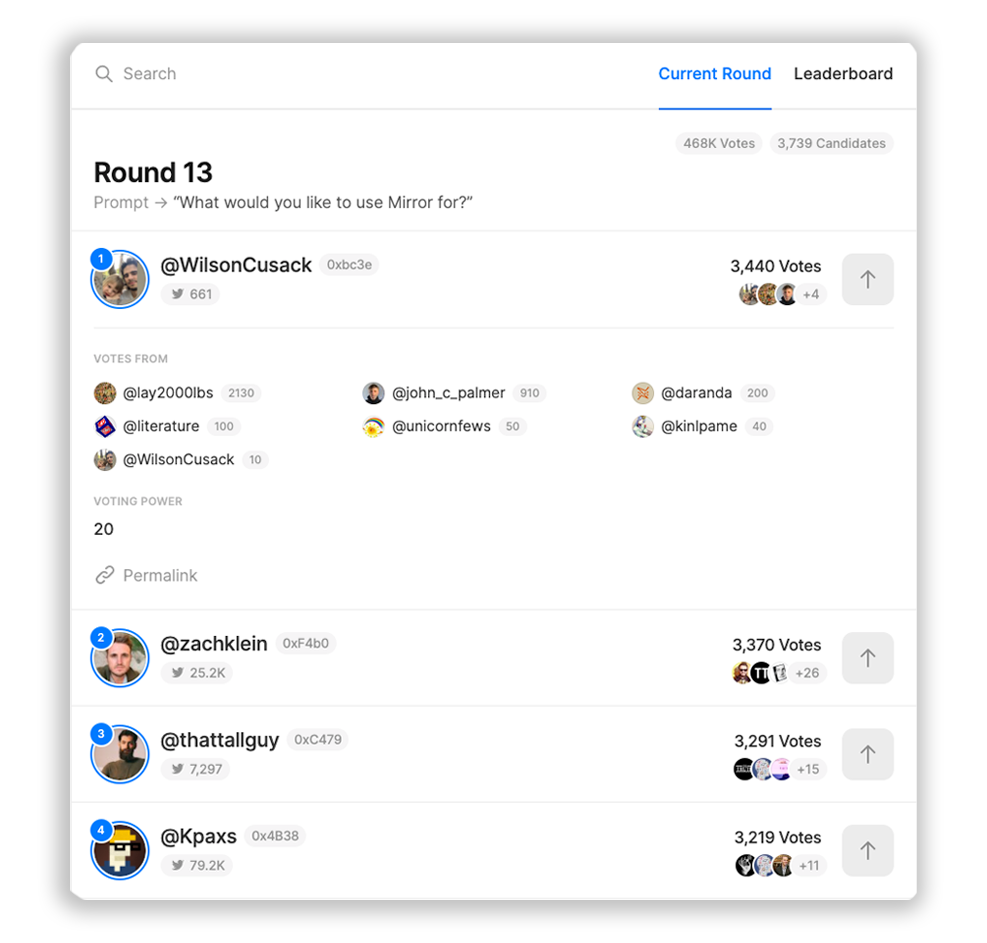
Each week, the top ten writers chosen by the community get a $WRITE token and unlock their own Mirror publication.
- As of right now, participating in the $WRITE Race is the only way to get access to Mirror's platform.
Voting power is correlated with how much $WRITE you hold. The more you have, the more your vote counts.
- Each vote is weighted at 1000x of your $WRITE balance, so someone with 10 $WRITE can give 10,000 points per vote.
- You can only vote on one candidate each round!
"Writing as usual"
Once you get to the actual writing, the similarities to Medium, or any other modern CMS, become more apparent — both the editor and actual posts are minimal and place content front-and-center.
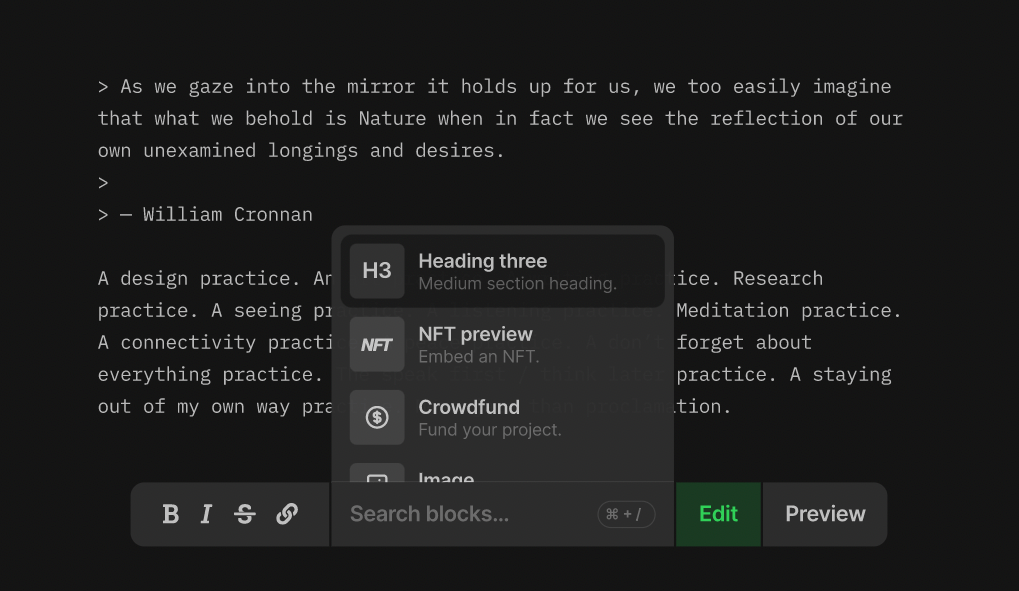
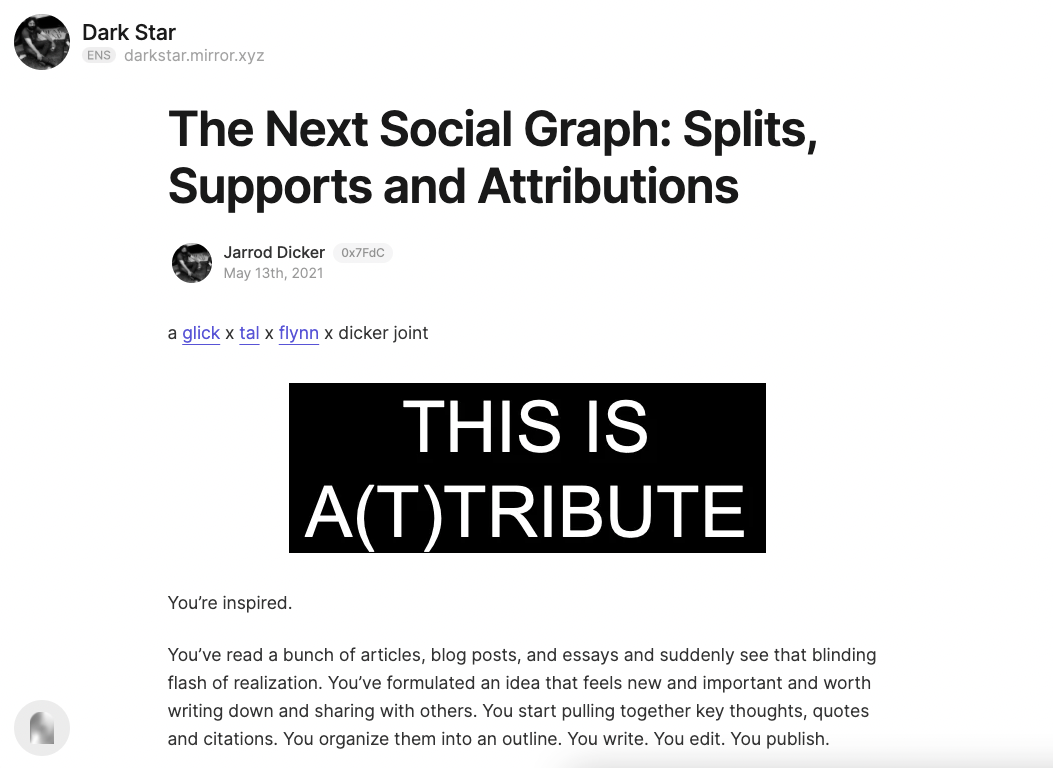
I really like how how the Mirror team ended their post announcing the $WRITE race:
So what’s gonna happen? We have no idea, and we wouldn’t have it any other way.
Maybe the prominent voices will reign supreme. Maybe an up-and-coming voice will climb the ranks and blow our minds. Maybe your favorite writer will get in. Maybe you’ll get in. Maybe you’ll discover a writer or two you’ve never heard of, whether they get in or not. Whatever happens, we hope it’s inspiring. We hope to learn from this first round ways to improve subsequent rounds. We hope to create a tool that benefits everyone as much as it surprises us.
Only people who have $WRITE can vote, which effectively means that the community gets to decide what it becomes.
This attitude is key. The biggest reason why so many writers are against publishing on Medium (and Twitter, YouTube, and Facebook) is because you're just renting your platform.
"Publishing like never before"
Mirror flips this model on its head by fostering a community operated platform. Instead of a centralized company deciding who gets access to Mirror, the community chooses.
- Mirror the company will surely maintain some sort of influence on the development of the actual product, but this semi-decentralized nature for handling community interactions solves so many of the problems of web 2.0 platforms.
- The big platforms like Twitter, Facebook, and YouTube are still dealing with the ramifications of such large communities. Moderation isn't easy!
Democratizing a platform — with thoughtful constraints — is a delicate yet promising model that gets me excited for the future.
What's next?
Mirror doesn't stop at $WRITE. Publishers on Mirror can mint their own tokens to crowdfund projects, auction actual essays as NFTs, and even split the proceeds between collaborators, audience, whoever.
Share the splits
Splits allow for rewards to be shared between writers, collaborators, and even their audiences. Here's Jarrod Dicker's explanation from the article screenshotted above:
Splits take behaviors that used to be purely intrinsic and status driven (social cred) and make them financially extrinsic (social + economic cred).
He continues:
Splits can be used to share the revenue generated from a sale of an NFT with any set number of collaborators. You can specify that Jonathan should get 20% and Tal should get 40% and so on until 100% of the treasury is allocated. When money comes in, it programmably flows out based on these percentages. This is all handled by the smart contract. Trustless and public.
But another way to use splits, and the more systemically significant one, is to attribute your sources of revelation. As the Mirror team put it, “collaboration then extends to who inspired your idea and to what extent.” In this use-case, you specify that, say, Patrick Rivera contributed 7% of the inspiration, while Packy McCormick provided 4% and Sari Azout and Jad Esber did 12%. When revenue is generated by your NFT, they automatically get their cut.
Until the resale market for NFTs becomes a thing, creators like Jack Butcher, Packy McCormick, Colin and Samir, and Emily Segal have already started setting new standards for a new economy.
Colin and Samir sold an NFT for how much?
This video is so worth watching. Colin and Samir, the creators who talk about creators, auctioned their first NFT "Seat at the Table" for 9.7 ETH on Mirror.
- They do a great job of explaining what exactly is going on here, how it happened, how it works, just what an NFT is, exactly.
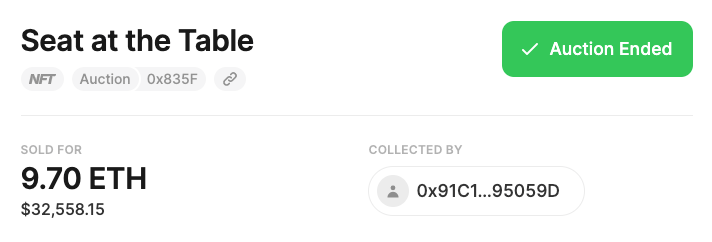
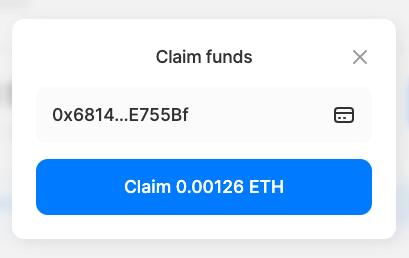
A screenshot of the auction Colin and Samir ran on Mirror, and the window showing the option to claim funds.
So... how does this all work?
I participated in Colin and Samir's first NFT, so let's use that as an example. The process of getting involved was pretty simple — all it took was a single tweet. This is interesting in that it serves to verify things but also helps amplify the message even further.
It's not much, but I actually did get 0.00126 ETH from Colin and Samir for this — literally a virtual token of appreciation.
Even if I don't cash out the ETH, my wallet ID is now permanently tied to the auction, so theoretically, Colin and Samir could invite people who participated in the first split to an exclusive auction or grant them early access to future drops.
Crowdfunding a novel
It doesn't stop there. Emily Segal crowdfunded an actual book on Mirror — what she says is the first novel in human history to be funded this way. She did this by creating a dedicated $NOVEL token on Mirror, and raised 25 ETH.
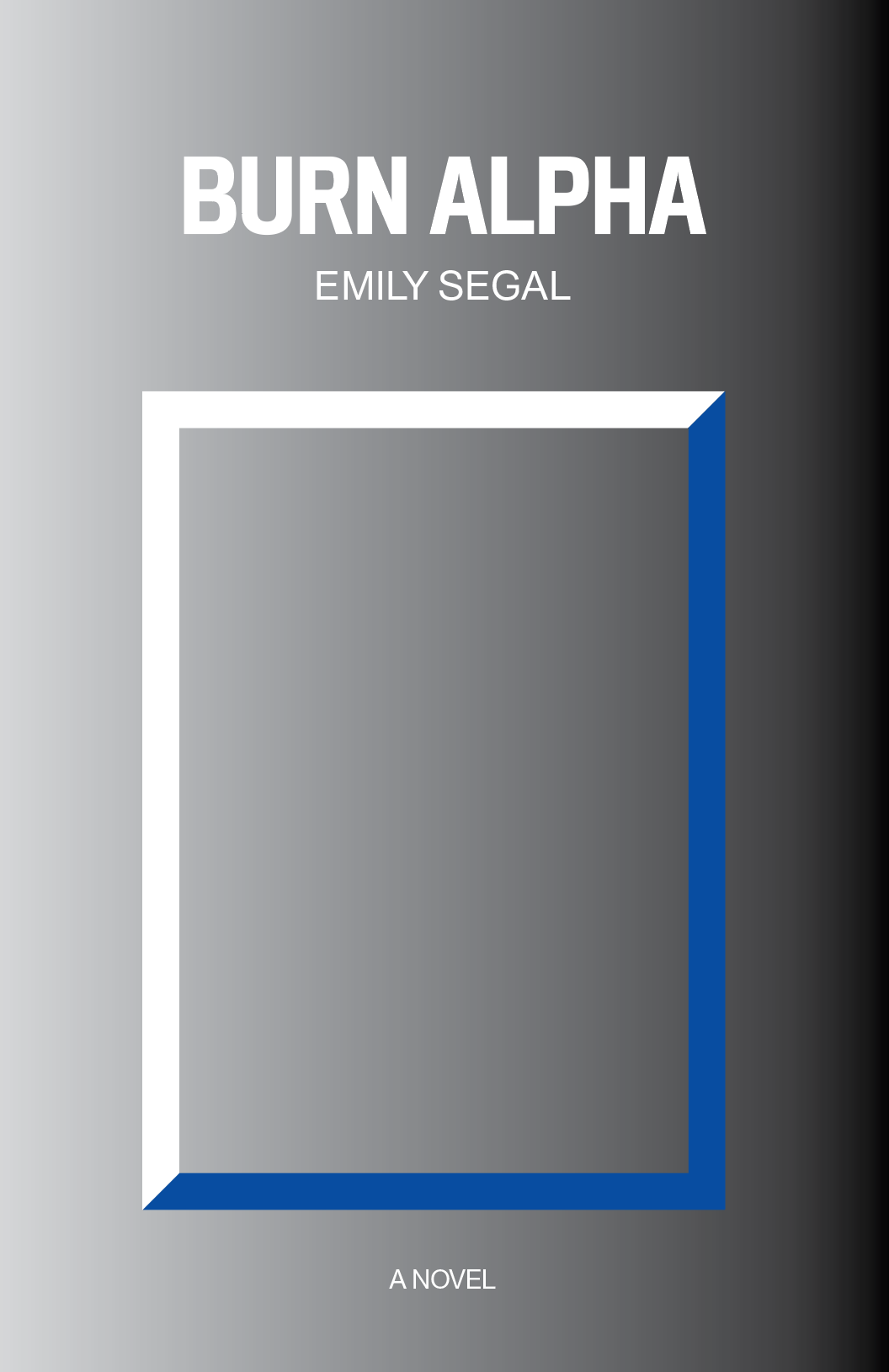
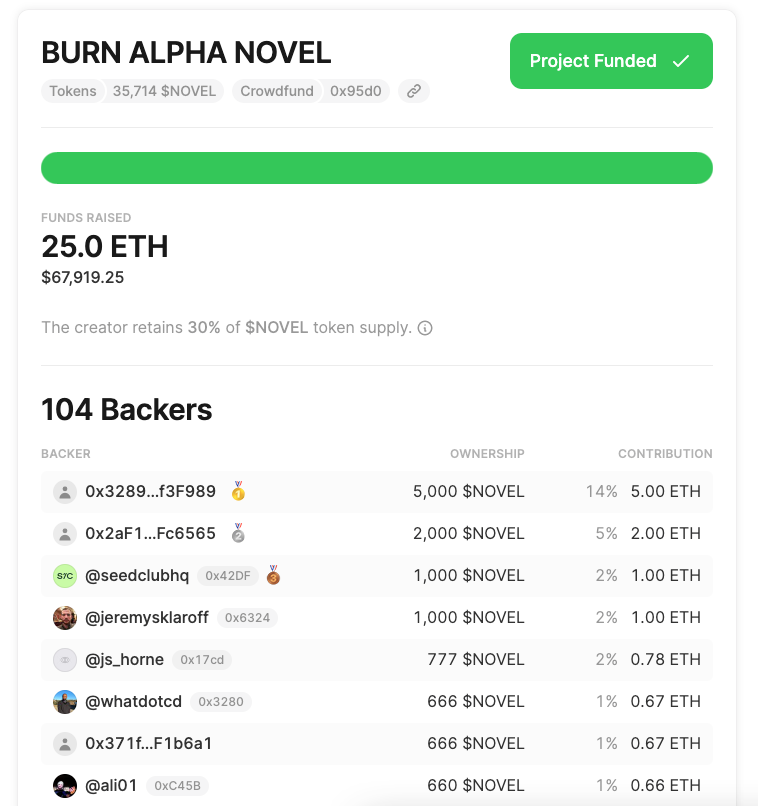
The cover for Emily's novel and the successful crowdfunding campaign on Mirror.
Emily, the author of the book, retains 30% (a number she was able to customize on Mirror). There's a similar split which doles out different amounts of ownership of the novel itself to each backer depending on the size of their contribution.
Similar missions, different methods
These splits make me think of the stuff that Stir has been building for creators, approached from another angle.
- Stir is a centralized company that handles all of that for you, providing tight security and support, which can be very beneficial for that use-case.
- The decentralized efforts of Mirror look to provide a different set of benefits than what a company like Stir offers.
The crowdfunding is reminiscent of Kickstarter and GoFundMe, two darlings of the previous web 2.0 era. Removing the middleman is a big deal, and something we'll only see more of with time.
How to join Mirror
You have to enter the $WRITE Race! The process of actually applying is pretty simple: you connect your wallet and then post a tweet to verify your identity. Here's mine, for example.
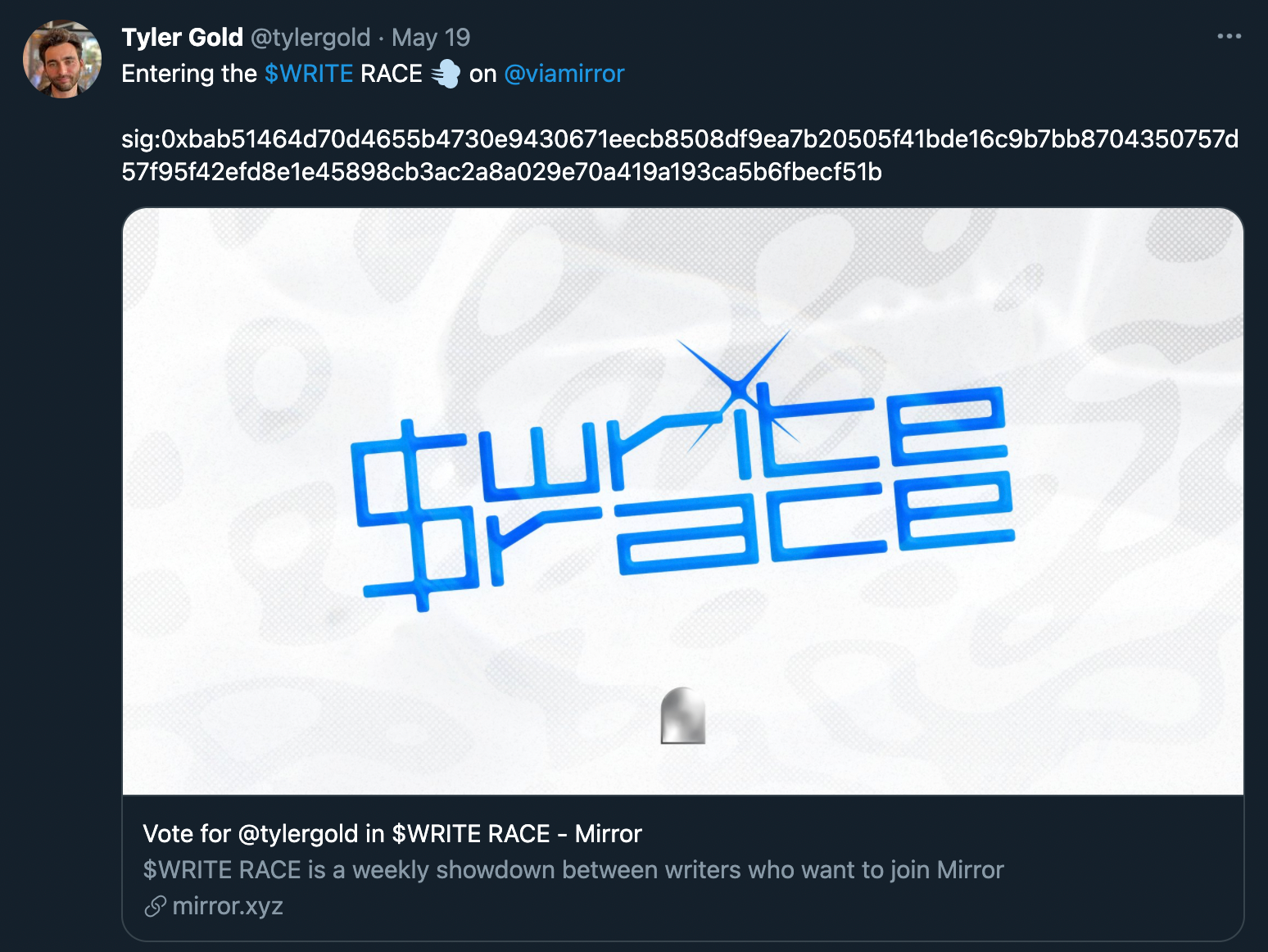
The process of actually getting selected to win 1 of those 10 $WRITE tokens is a less simple process.
Even if you don't win the race, everyone who joins the waitlist gets 0.1 $WRITE as a reward for participating, an interesting incentive to keep people coming back even if they don't get accepted. Then when the platform does open up to everyone, that person will already have a bunch of $WRITE.
We're still in the early days of cryptocurrency, blockchain platforms, decentralized finance, DAOs, and what's next.
I find Mirror extremely promising, but I'm not going to give up Ghost just yet.
So I'll be following Mirror very closely — and hopefully will be able to publish some stuff there very soon.
Further reading
Innovations in crowdfunding personalized tokens:

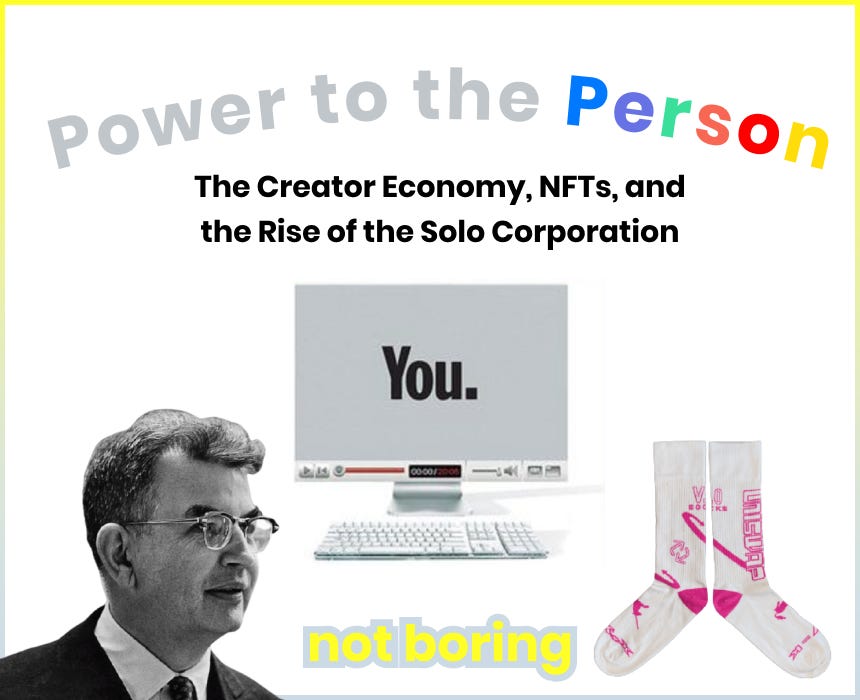


Feature updates and technical posts from the Mirror dev team:


The whole DAO thing is something I'll write about in the future. In the meantime, here are a couple articles:
